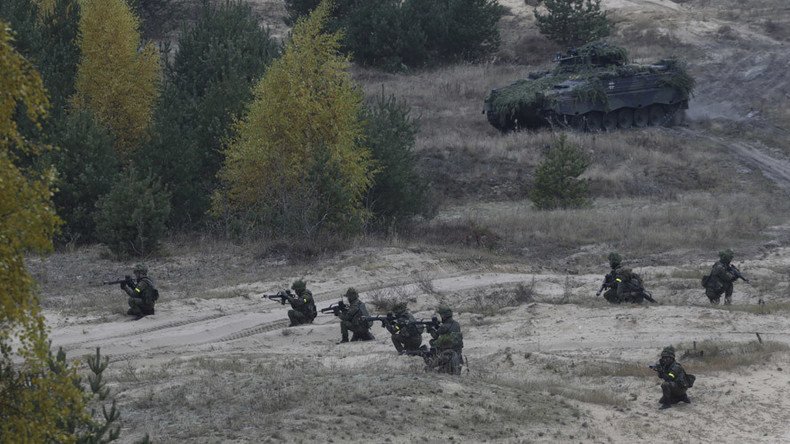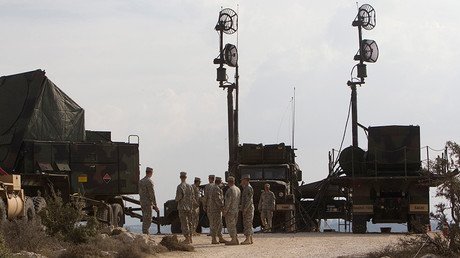NATO returning to ‘historic role as war fighting command’ to counter Russia – top US general

The commander of NATO and US forces in Europe has called for yet more armored vehicles and troops to be deployed on the continent to counter what he calls “a resurgent Russia.”
Testifying before a Senate appropriations subcommittee on Tuesday, General Curtis M. Scaparrotti, head of United States European Command (EUCOM) – in charge of all US forces in Europe, as well as NATO’s Supreme Allied Commander – accused Russia of threatening regional and global security.
“Today we face the most dynamic European strategic environment in recent history,” he said in his testimony. “In the east, a resurgent Russia had turned from partner to antagonist as it seeks to undermine the Western-led international order and reassert itself as a global power.”
“Accordingly, we are adjusting our plans, our posture, our readiness to remain relevant to combat the threats we face,” he added. “In short, we are returning to our historic role as a war fighting command.”
Two American combat brigades are permanently stationed in Europe: the 2nd Cavalry Regiment in Germany and the 173rd Airborne in Italy, which make up around 10,000 of the 60,000-strong American troop presence in Europe. Scaparrotti says more troops are needed – specifically more armored and infantry divisions to counter Russia’s western flank, as well “enablers” like engineers, aviation and fire support staff for the European Reassurance Initiative.
“Russia’s posture is not a light force, it’s a heavy force,” he continued.
“In order to have the posture that is both credible and of the right composition, we need more armored forces… to make sure that we do have a force of enough size that enables us to deter Russia.”
“Five or six years ago, we weren’t concerned about being ready [to fight] today,” Scaparrotti added. “That has changed.”
During the Senate hearing, Scaparrotti also called for more funding to improve local capabilities for infrastructure capable of moving and housing troops.
The European Reassurance Initiative was launched in 2014 in the wake of the political crisis in Ukraine and the perceived Russian intervention there, leading to the most vocal members of NATO – Poland and the Baltic states – claiming that they would be Moscow’s next target. This prompted leading members of the alliance to agree on troop deployments. In March, 800 British soldiers began arriving in Estonia, while Germany sent troops and tanks to Lithuania. Earlier in April, 1,350 NATO soldiers arrived in northeastern Poland in line with the planned buildup.
READ MORE: Risk of nuclear weapons use at all-time high since Cold War – UN study
Russia has consistently criticized the NATO buildup on its doorstep, describing it as a threat to regional security.
“We deplore that deployment, for it raises tensions in Europe along the border between NATO and Russia. Russia doesn’t pose any threat to Estonia nor any other NATO member state,” Russian Ambassador to the UK Alexander Yakovenko recently told the Daily Mail.













